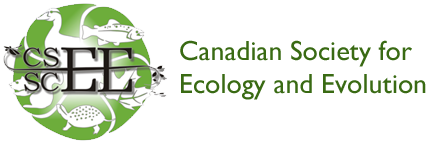Funded PhD Position: Global Change and Coral Reef Resilience
The Baum Lab at the University of Victoria (British Columbia, Canada) seeks to recruit a highly motivated PhD student to join our Kiritimati (Christmas Island) coral team and undertake fundamental research investigating coral reef resilience to climate change and local anthropogenic stressors.
Research Context and Focus: Climate change-amplified marine heatwaves pose a direct threat to the long-term persistence of the world’s coral reefs, heightening the need for research that illuminates the factors underpinning the resilience of these ecosystems. At the same time, most reefs are impacted to some degree by local anthropogenic disturbance, but little research examines how global and local stressors interact.
Our research group’s long-term ecosystem-scale monitoring of Kiritimati – a large atoll in the central equatorial Pacific Ocean with a spatial gradient of local human disturbance – presents an excellent platform for novel study and insights into coral reef resilience under climate change. The 2015-2016 El Niño, which triggered the 3rd global coral bleaching event, centred on Kiritimati. On the atoll’s forereefs the event caused mass coral bleaching and mortality, with almost 90% of coral cover lost. Almost a decade later, Kiritimati’s reefs are recovering from this devastation, presenting the opportunity to investigate critical questions about coral reef recovery rates and trajectories, especially in the face of new heatwaves. With some notable exceptions, few studies to date have been able to examine the factors determining long-term recovery of coral reef ecosystems. Being able to do so now across Kiritimati’s disturbance gradient – and with long-term coral symbiosis datasets is an exciting opportunity.
Research questions could include examining coral reef recovery rates and trajectories, and community composition and diversity changes. Ideally the PhD student will conduct some research on the dynamics of coral symbioses using metabarcoding and coral genomics data. The PhD student will have access to our long-term coral reef benthic community data (2009 – 2024) and coral-symbiont data (2014 – 2024) from around the atoll and their research will involve (at least) annual expeditions to Kiritimati to collect new data via scientific diving, followed by molecular lab work, bioinformatics, and statistical analyses.
Relevant Skills:
- Scientific diving experience (with CAUS/AAUS qualification or desire to obtain CAUS);
- Ability to work well in a team, both in the field and in the lab;
- Experience working long days in remote field locations, or desire to do so (on an incredibly beautiful atoll and reef);
- Attention to detail, and meticulous work style, as evidenced by previous work;
- Experience with molecular lab techniques, or a desire to learn;
- Experience with programming, including processing and modelling next-generation sequencing data sets, or desire to learn how;
- Experience with statistical analysis, or a desire to learn.
Research Environment: The PhD position will be based in Prof. Julia Baum’s lab (https://juliakbaum.com; @BaumLab) in UVIC’s (https://www.uvic.ca/) Department of Biology. The Baum Lab is a supportive and stimulating research group, with scientists with extensive coral reef, scientific diving and molecular experience, who are also committed to EDI, to open science, and science communication. We have weekly lab meetings and an annual lab retreat. UVic is one of Canada’s top comprehensive universities and is located in Victoria, on beautiful Vancouver Island, British Columbia.
We encourage individuals from diverse backgrounds to apply, as we strive to provide an inclusive and supportive environment where all scholars can thrive. Funding is guaranteed at a competitive level of CDN$40,000 - 50,000 per year (depending on experience) and is open to international students. Note that eligible applicants (i.e. Canadians or individuals with permanent residency) should be highly competitive for, and will be expected to apply for, an NSERC graduate scholarship.
To apply: Candidates should submit the following materials via email to Dr. Baum (baum ‘at’ uvic.ca) in a single PDF document, with your last name in the file name and the subject heading “Global Change Coral Resilience PhD”:
- a cover letter explaining your motivation for applying for this PhD position, the scientific questions you are most interested in researching, and how your prior experience qualifies you for this position;
- a CV with the names and emails for 2-3 reference.
Applications will be reviewed starting October 1, 2024, but will be accepted on an ongoing basis until the position is filled. Students could start the PhD program in UVic’s Department of Biology in January, May or September 2025.
